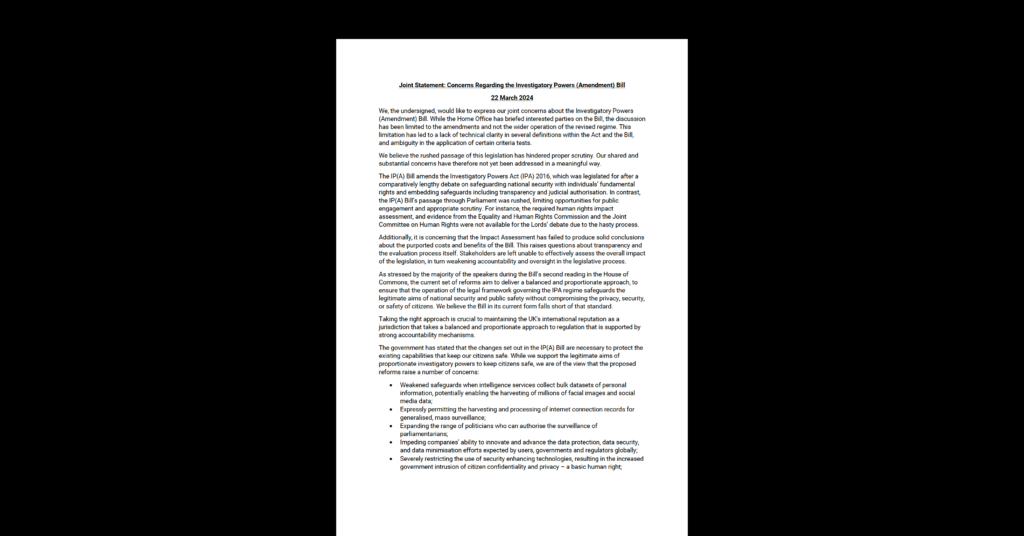The European Parliament Calls for Intermediary Liability Protection and Availability of Encryption in its DSM Strategy Report
This week, the European Parliament adopted in plenary its own-initiative report on “Towards a Digital Single Market Act.” The report represents the European Parliament’s political position on the Digital Single Market Strategy for Europe, published by the European Commission back in May 2015.
With this report, MEPs have flagged their issues of priority, which should help to steer the political agenda in the coming months. The reports covers quite a broad range of issues in the digital economy, from the role of platforms to digital content, but also issues such as e-government or digital skills. You may be thinking: “do not bite off more than you can chew”, but the report does have several good provisions.
Firstly, and more importantly, the European Parliament “stresses that the limited liability of intermediaries is essential to the protection of the openness of the internet, fundamental rights, legal certainty and innovation; recognises in this respect that the provisions on intermediary liability in the e-Commerce Directive are future-proof and technologically neutral” (Para. 73). We could not agree more. CDT has been constantly calling for strong intermediary liability protection – in fact, it is our main message in our response to the European Commission’s consultation on “Regulatory environment for platforms, online intermediaries, data and cloud computing and the collaborative economy.” The European Parliament is also right to point out Article 15(1) of the e-Commerce Directive, by which Member States shall not impose a general obligation on providers’ of transmission, storage and hosting services “to monitor the information which they transmit or store, nor a general obligation actively to seek facts or circumstances indicating illegal activity” (Para. 95). We have already expressed our concerns on the European Commission’s plans to introduce a “take down and stay down” approach and we want to preserve this protection.
Secondly, when it comes to access to data by law enforcement authorities, the report underlines the need for strict compliance with existing data protection legislation and respect for fundamental rights, and therefore “recalls (…) the importance of existing tools such as mutual legal assistance treaties (MLATs), which respect the rule of law and decrease the risk of improper access to data that are stored in foreign territory” (Para. 94). We share again the view of the European Parliament. CDT has been long calling for a major overhaul of government surveillance practices, and to replace them with a system of strong safeguards and clear restrictions. MLATs – even with imperfections – establish rules that are clear, consistent, and grounded in respect for the rule of law, and decrease the risk that governments will act improperly when attempting to access data that is stored in foreign territory.
Thirdly, the European Parliament “stresses the importance of improving the clarity and transparency of the copyright regime” (Para. 46). The report also addresses the issues of text and data mining (TDM) exceptions and we welcome that the European Parliament, like the European Commission, recognises that limitations and exceptions need to be finally part of the discussion as well.
Further, we welcome that the report stresses the need to guarantee non-discriminatory access to networks (Para. 55), as well as to ensure the rigorous application of the net neutrality principle (Para. 60). CDT will contribute to BEREC’s consultation on implementation, due out this summer. Finally, in their comments on encryption MEPs point out that encryption tools are useful for ensuring privacy and security, but they can also be used for criminal purposes (Para. 92). This is of course the case with just about any tool or technology – it can be used for good and bad purposes. In this case the good outweigh by far the bad. Strong encryption is fundamental to digital commerce and communication. CDT recently co-signed an open letter addressed to governments worldwide to demand the protection of strong security and encryption tools for all. The Dutch government, currently holding the Presidency of the Council of the EU, has also recently publically called for strong encryption. It added, correctly, that by weakening encryption, Internet traffic can be exposed to criminals, terrorists, and other foreign intelligence agencies, rather than enabling law enforcement to protect against such threats.
In conclusion, CDT commends the Parliament for a comprehensive and positive report, and we encourage the European Commission to bear the views highlighted above in mind as they move forward with legislative proposals.

